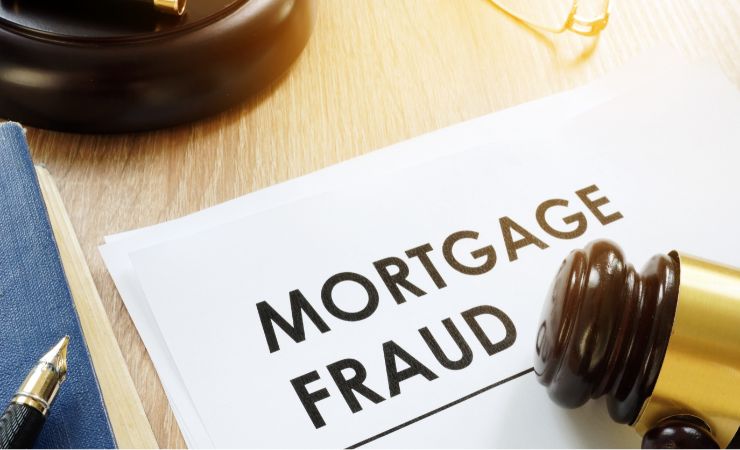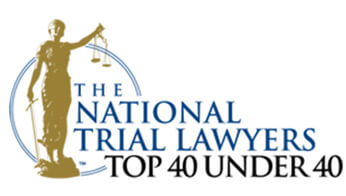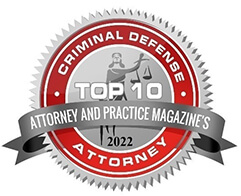Staten Island Mortgage Fraud Lawyer

Staten Island Mortgage Fraud Attorney
Mortgage fraud occurs when a person deliberately withholds or intentionally creates or provides information that is necessary for an underwriter or lender to appropriately purchase or insure a mortgage loan. Prior to 2009, these types of cases were rare; however, they have grown increasingly common. Mortgage fraud is criminally prosecuted and could result in a misdemeanor or felony charge.
At The Vitaliano Law Firm, our team knows how serious these charges can be and the penalties you could face if convicted. With our team’s experience, you can get the representation you deserve to help you navigate the difficult legal battles ahead. No matter what circumstances you face, our legal team builds a case unique to your details to confidently represent you.
What Is Residential Mortgage Fraud?
Anytime a person intentionally provides falsified information in writing or verbally in an effort to defraud a mortgage loan, that person could be suspected of committing mortgage fraud. Examples of mortgage fraud include:
- Inflating one’s assets as a way to manipulate one’s qualifications for a loan
- Attempting to obtain a loan in the name of someone else
- Claiming you will own a property and live in it when there is no intention to do so
- Attempting to quickly flip a home where the home is purchased, no upgrades are made, and the home is quickly resold using a false appraisal
- Attempting to sell a property that you do not own or hold the title to
- Creating fake purchasers or sellers to duplicate home sales with any actual property transaction
These examples do not represent all the ways in which mortgage fraud can occur, but they do represent several common ways. Any fraudulent activity in purchasing or selling a home could be considered mortgage fraud and should be discussed with an attorney.
Degrees of Mortgage Fraud
Mortgage fraud can be prosecuted under varying degrees, and the level at which each case is determined is dependent on the amount of the proceeds. The varying degrees of mortgage fraud are:
- Fifth degree fraud. A person receiving less than $1000 in proceeds could be guilty of mortgage fraud in the fifth degree. As a Class A misdemeanor, penalties could include jail time of up to 364 days and a fine of up to $1000.
- Fourth degree fraud. Committing mortgage fraud resulting in gaining proceeds of more than $1000 could result in a Class E felony charge resulting in punishments of up to 4 years in prison and fines equating to no more than double the amount of proceeds gained.
- Third degree fraud. If the proceeds resulting from mortgage fraud are greater than $3000, it could be considered a Class D felony. If convicted, penalties could include a prison term of up to 7 years and fines equating to no more than double the amount of proceeds gained.
- Second degree fraud. When the proceeds from mortgage fraud total more than $50,000, it can be prosecuted as a Class C felony. If convicted, penalties could mean up to 15 years in prison, with fines no more than double the proceeds gained.
- First degree fraud. In the event proceeds from mortgage fraud result in proceeds greater than $1,000,000, a guilty conviction could mean a prison term of up to 25 years with fines up to double the amount of proceeds gained.
No matter what degree of mortgage fraud you could be facing in Staten Island, NY, the penalties could be severe and carry many long-term consequences impacting your ability to receive loans in the future as well as employment and housing opportunities.
Defenses to Mortgage Fraud
While the circumstances of your case will determine an appropriate defense to use, there are common defense strategies that could help you avoid a conviction. Common defense strategies include:
- Occupancy defense. In many circumstances, an individual who obtains a mortgage under fraudulent circumstances but occupies the residence will not be prosecuted for mortgage fraud. However, even if a person occupies the residence, they could be charged as an accessory to mortgage fraud.
- Lack of intent. If the circumstances of the charges were committed unknowingly, then there is no intent. If there is a lack of intent, then under the definition of mortgage fraud, it cannot have occurred. The mortgage must include intent.
These defenses can be a starting point for you and your attorney to examine your case. However, your attorney will review the circumstances of your case in order to build the right defense for you.
FAQs
Q: Do People Get Caught for Mortgage Fraud?
A: The short answer is, yes, people get caught for mortgage fraud. It is always advised to avoid fraudulent behavior that could lead to criminal prosecution. Even without a conviction, you could see your reputation damaged by accusations alone, even if your actions were by mistake. If you are accused of mortgage fraud, speak with an attorney as quickly as possible.
Q: What Is Residential Mortgage Fraud?
A: Residential mortgage fraud occurs when there is an intentional act committed by an individual towards a mortgage lender, underwriter, or other entity that handles the mortgage or mortgage insurance by which they falsely identify the circumstances of their finances. The fraudulent activity allows a purchase or sale to occur in favor of the person committing the fraud.
Q: Who Investigates Mortgage Fraud in New York?
A: Most criminal mortgage fraud cases are investigated by the FBI. In addition, the District Attorney’s Office in New York could also lead the criminal investigation of your case. If the case involves a mortgage that is insured by the Department of Housing and Urban Development, you could also be investigated by the Office of the Inspector General.
Q: What Is the Penalty for Mortgage Fraud in New York?
A: The penalty for mortgage fraud is dependent on the degree of crime committed. Mortgage fraud ranges from fifth degree to first degree. Fifth degree is considered a misdemeanor, punishable by up to a year in jail and $1,000 fines, while a first degree is considered a felony, punishable by up to 24 years in prison and fines up to double the amount of proceeds gained.
Staten Island Mortgage Fraud Lawyer
Mortgage fraud can have a significant impact on your future both in and out of the criminal justice system. If you are accused of mortgage fraud, get the help you deserve from an attorney with the experience and knowledge to handle your case. At The Vitaliano Law Firm, our team has the answers to your mortgage fraud questions. Contact us today for a consultation.
Testimonials






